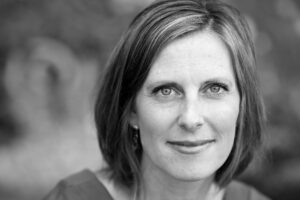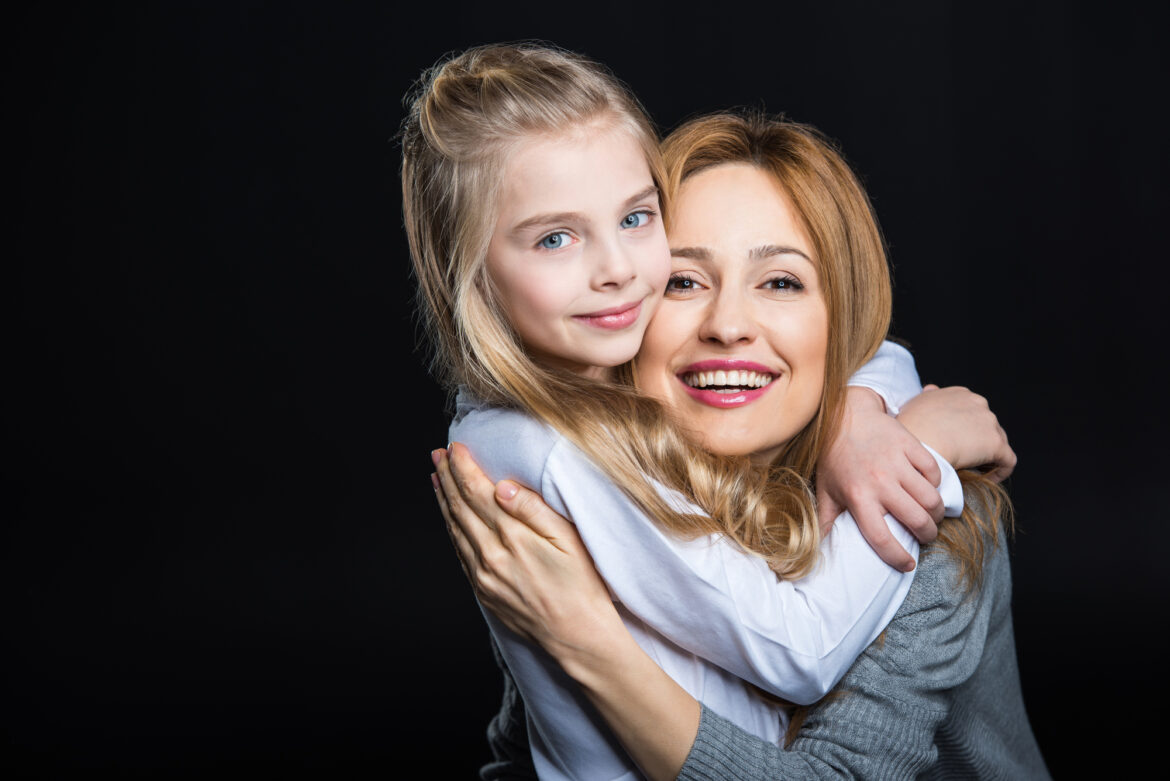Understanding how the effects of adoption trauma can look so good they get missed.
By Sara Easterly
A common mistake adoptive parents make when hearing adult adoptees speak about adoption trauma is discounting their experiences because “times have changed” or their adoptee hasn’t voiced similar feelings. Some parents will straight-up ask their adopted children if they feel the same way and then rest easy when their children deny having similar feelings. Differing details of adoption stories can be used as evidence of irrelevance. Adoptee voices that land as “angry” are often quickly written off as “examples of a bad adoption.”
“Not my adoptee,” is a knee-jerk, defensive response that blinds parents to adoption-related dynamics that may be uncomfortable or painful to consider—especially when everything seems to be going swimmingly in early childhood. This posture, though, discounts the real and proven trauma inherent in adoption, missing an opportunity to fully support adopted children and ultimately benefit from closer, more authentic relationships.
That trauma looks good on you.
One reason it’s so easy to miss signs of adoption trauma is because it can present so well.
Adoptees are unintentionally groomed to be people-pleasers. Once we’ve lost our first mothers to adoption, we can work incredibly hard to win the love of our next mothers. We strive to measure up—doing and saying whatever is needed to keep our adoptive mothers close. This is all unconscious and certainly not meant to be fraudulent. To our brains, running the show, it’s simply a matter of survival. Children need parents, after all, and attachment is our greatest human need, taking priority even over such basics as shelter and food, as explained by child developmental psychologist Dr. Gordon Neufeld.
Of course, “good,” compliant behavior is welcomed and adored in our culture. What parent wouldn’t find a well-behaving child absolutely lovely? As a mother, I confess that my job feels so much easier when my kids behave. Unfortunately, though, the more adoptees are praised for our good behavior, the more our unhealthy patterns are reinforced and extend outside of our family relationships. We’ll ditch our true feelings in a heartbeat if it means feeling treasured and keeping loved ones close.
Other manifestations of adoption trauma are valued by mainstream culture: perfectionism churns out hard-working, dedicated students and employees who’ll always go the extra mile—nobody spotting the adoptee’s frantic need to prove his or her worth. Adoptees often make natural leaders—nobody knowing that we can harbor a desperate need to be in charge that started upon relinquishment when our brains decided nobody was looking out for us, so we’re best served when we’re at the helm. People-pleasers can also be charismatic, supportive, empathetic, and generous … others unaware of the self-sabotage that can be at play behind the scenes. We can seem unfazed in the face of stressful situations, many not understanding that’s because we’ve spent a lifetime diminishing our feelings and disregarding deep pain in order to become masters of compartmentalization.
These are traits we value in society. They serve. These traits aren’t all bad, of course. But they can be inwardly destructive—especially if adoptees aren’t aware of them, and most certainly if the cost is the adoptee’s true sense of self.
Adoption blinds.
Another reason it’s harder to spot adoption trauma is because it hides itself from adoptees themselves. The grief of losing a first family member through adoption is so significant it’s not easily looked at by the adoptee. Like looking at the sun too directly, it will burn. What’s more, our experiences of such great loss are often preverbal, before we learned words like loneliness, isolation, abandonment, and hopelessness to help us understand our overwhelming emotions—so overwhelming, sometimes, they aren’t felt. Our brains protect us in that way, because to feel them just might do us in.
Developmentally, most children won’t even have the capacity to reflect upon adoption loss until much later in life. This is what’s known as “living in the fog”—a state of denial or numbness in which adoptees are unable to closely examine the effects of adoption. When directly asked, in-the-fog adoptees often won’t have the consciousness, or the words, to talk about adoption trauma. We spend years, and possibly decades, feeling more comfortable parroting society’s or a family’s lighthearted interpretation of adoption than trying to articulate our underground, confusing, complex emotions.
When we sense a disconnect between our nuanced feelings and culture’s saccharine-sweet story of adoption, we blame ourselves. When we fail at being “perfect,” we are prone toward additional self-attack. When we’re more three-dimensional than simply “good” adoptees, we can resort to secrecy in order to keep the darker parts of ourselves hidden from those closest to us. In any of these ways, we can end up living a double life, censoring large swaths of ourselves—making it harder to feel fully known and rest in a sense of deep love by those closest to us.
This is why it’s critically important to listen to out-of-the-fog adult adoptees. Adoptees who share their stories aren’t usually doing so for fame, glory, or money, but out of a genuine desire to support other adoptees. We share on the other side of healing—or in the midst of our healing—in hopes of opening adoptive parents’ eyes to our innermost secrets that we wish our parents had had access to in our younger years.
Are some of us angry? Absolutely. Society hasn’t made room for our voices in the story of adoption, despite the fact that we’re its central players. Some of us have been let down by the people closest to us—again and again. Some of us haven’t felt seen or known. Some of us have been mistreated. Some of us have sought to take our own lives to stop the pain without having to shed light on adoption’s darkest manifestations.
“Not my adoptee” could easily be your adoptee—whether you or your child recognize so right now. Like all children, adoptees eventually grow older; hopefully, in the name of their mental health and wholeness as individuals, their feelings around adoption will evolve over time. As your child matures, you’ll want your child to look back and know that you did your best to understand them, to see them, to know them, and to guide them. While all adoptees are different, and each story is unique, listening to #adopteevoices—an array of them—is of utmost importance when raising adopted children toward their full developmental potential.
Sara Easterly is an adoptee and award-winning author of books and essays. Her memoir, Searching for Mom, won a Gold Medal in the Illumination Book Awards, among many other honors. Her essays and articles have been published by Psychology Today, Dear Adoption, Red Letter Christians, Feminine Collective, Her View From Home, Godspace, and others. Find her online at saraeasterly.com, on Facebook, on Instagram @saraeasterlyauthor, and on Twitter @saraeasterly.

BEFORE YOU GO…
Look on our home page for more articles about adoptees, NPEs, and genetic genealogy.
- Please leave a comment below and share your thoughts.
- Let us know what you want to see in Severance. Send a message to bkjax@icloud.com.
- Tell us your stories. See guidelines.
- If you’re an NPE, adoptee, or donor conceived person; a sibling of someone in one of these groups; or a helping professional (for example, a therapist or genetic genealogist) you’re welcome to join our private Facebook group.
- Like us on Facebook and follow us on Twitter and Instagram @Severancemag.


9 comments
This article has helped me continue on my path out of the 68 year old fog that has been my life. Thank you!
” “Not my adoptee,” is a knee-jerk, defensive response that blinds parents to adoption-related dynamics that may be uncomfortable or painful to consider…”
I find that the stuff I least want to see and deal with is often the most necessary in my own growth as a parent and as a person. Thanks, Sara, for your wise words on this knee-jerk phenomenon that I recognize in myself.
Such a thought provoking article. I am a parent who adopted my child who is now a young adult. Thank you. How can I share this article with others via e mail?
Thanks for reaching out. I’m glad you found the article useful. I’d like to connect more via email, but in the mean time, the best way to share an article via email is to paste the link to the story: https://severancemag.com/not-my-adoptee-yes-your-adoptee/
An excellent article Thankyou for writing it!!
This is truth!
For some adoptee voices please read
http://www.intercountryadopteevoices.com
Absolutely Sara! “Coming out of the fog,” or, as I prefer to say “acknowledging the lifelong impact of adoption” is essential to overcoming shame and self-blame, as well as addressing anger that sometimes arises, toward family, institutions, and/or society. Thank you for raising awareness of the special, unspoken, and unmet needs of relinquished/ adopted persons and their families.
Hi! My partner and I will only be able to have kids via IVF/IUI or adoption and we are looking into our options. So of course, we are researching and reading a lot – especially on the psychological effects of adoption and voices of adoptees. Thank you for these insights. We would never want our children to feel like they need to be perfect, shield their emotions, and mostly, we would love to spare them any pain. So if we ever consider adoption, (it is a big if at this point), these are all things we will try to prepare for. If it’s ever possible… Thank you so much for writing this!
This is an excellent and nuanced essay into the reality of adoption.
Thank you for this well-written explanation pointing to the hidden, lifelong effects of relinquishment trauma on adoptees. I am not in the triad, but am adjacent to adoption through several close family members and friends, including one deeply-missed young family member. Our society has a long way to go to reduce the harmful rainbows and unicorns fairytale narrative that currently surrounds adoption. As a non-adopted GenX person, it took me a long time to accept and understand the message of your article– and now that my eyes are opened, even I can see the barrage of daily micro-aggressions and gaslighting that saturate our culture and silence adult adoptee voices.